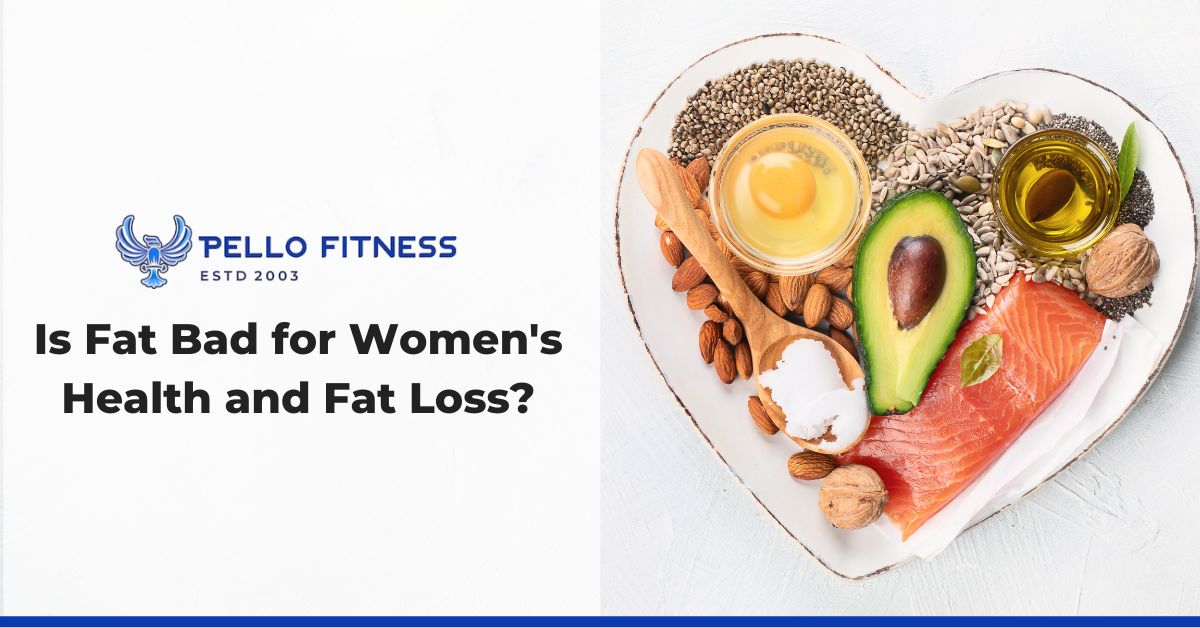|
There is much misinformation when it comes to weight loss. In the 70s, 80s, and 90s, experts demonized fat. However, we're now entering a new pro-fat era. With education, we can make better decisions about which fats we should and should not consume on our weight loss journey. What Are Fats? Fats are also called "lipids" or "fatty acids." Fats in our bodies are made up of a "triglyceride," a three-molecule structure, i.e., three different molecules joined together. Our bodies will make most of the fat we need. However, there are some fats our bodies are unable to create. We can only get these fats by eating them. These are known as "essential" fats. Essential fats include Omega-6 fatty acids, such as those found in corn oil, seeds, and nuts, and Omega-3 fatty acids, such as those in flax seed and fish. There are three main types of fat found in the food you consume:
Why Are Fats Important? There are many reasons why fats are essential for women. The main reason is that female bodies have been designed by evolution to have children. DHA, an omega-3 fat, is one of the most critical brain-building blocks for a baby during pregnancy. DHA makes up approximately 10 percent of our brain, not counting water. However, our bodies cannot produce this kind of fat, meaning it has to come from our diet. While nursing and during pregnancy, most of this DHA comes from the woman's stored body fat. This is why ladies need to have much more body fat when compared with other animals. Consuming the right type and amount of fats is not only vital from a fertility point of view. It is also crucial for women in peri-menopause and menopause, as it can help prevent weight gain and the increasing risk of cardiovascular disease. How Can Fats Become Evil? Fats can become evil when we eat too many trans fatty acids and saturated fats. Both of these can increase the risk for heart disease, cause clogged arteries, and raise cholesterol levels. You will find saturated fats in animal products, such as eggs, high-fat dairy, poultry skin, and meat, and in vegetable fats that are liquid when at room temperatures, for instance, palm and coconut oils. Saturated fats should be less than 10 percent of your total calories. Artificial trans fats are a real cause for concern. They are used extensively in some margarine, microwave popcorn, packaged snack foods, crackers, icings, cookies, baked goods, and frying. Research indicates that even a tiny amount of artificial trans fats can lower good (HDL) cholesterol and increase bad (LDL) cholesterol, significantly increasing the risk of heart disease. Low Fat Or High Fat For Weight Loss? A low-fat diet restricts the amount of dietary fat you eat per day. It will usually be reduced to less than 30 percent of your energy intake. A high-fat diet is the opposite of this. We have seen high-fat, low-carb diets become more prevalent recently, with the Atkins and Ketogenic diets being two of the most popular. Following a high-fat diet can be effective for weight loss. However, if you cut carbs, you remove sources of essential things gut bacteria and the body needs, such as polyphenols, nutrients, and fiber. Plus, if you select the wrong fats, you may experience weight gain. Current research indicates that a balanced diet consisting of plant-based, naturally low-fat foods is the best for gut health. However, eradicating fats from your diet altogether is never advised. It is all about making sensible decisions about the fat you consume. How Much Fat Should You Eat For Weight Management And Cardiovascular Health? To effectively lose weight, you are advised to consume between 20 and 35 percent of your daily intake from the fats you eat. This is deemed an effective weight loss range provided that the total calories you consume still keep you in a calorie deficit which is a crucial aspect of losing weight. One of the most important things you need to do is get your Omega-6 to Omega-3 ratio right. This should be around 3:1 for optimal heart health. Still, there is evidence that shifting it to half-half might be even better for lowering excess inflammation in the body. Wrapping Up So, we can conclude that, just like with protein and carbs, understanding the different types of fats and how they may affect your fitness and health is vital for making the right choices.
Generally speaking, a radical approach almost never works out in the long term. Focus on balance when it comes to your macronutrient ratios. More importantly, find a method that works with your lifestyle; thus, you can maintain it for the rest of your life. If you're looking for general recommendations:
Once you stick to those guidelines long enough, you'll feel the difference. Get in touch if you want a commitment-free chat about your unique goals!
0 Comments
Leave a Reply. |
AuthorZach Pello Archives
June 2023
Categories |
Services |
Company |
|
|
© COPYRIGHT 2018. ALL RIGHTS RESERVED.
|
Website Design by My Personal Trainer Website
|


 RSS Feed
RSS Feed